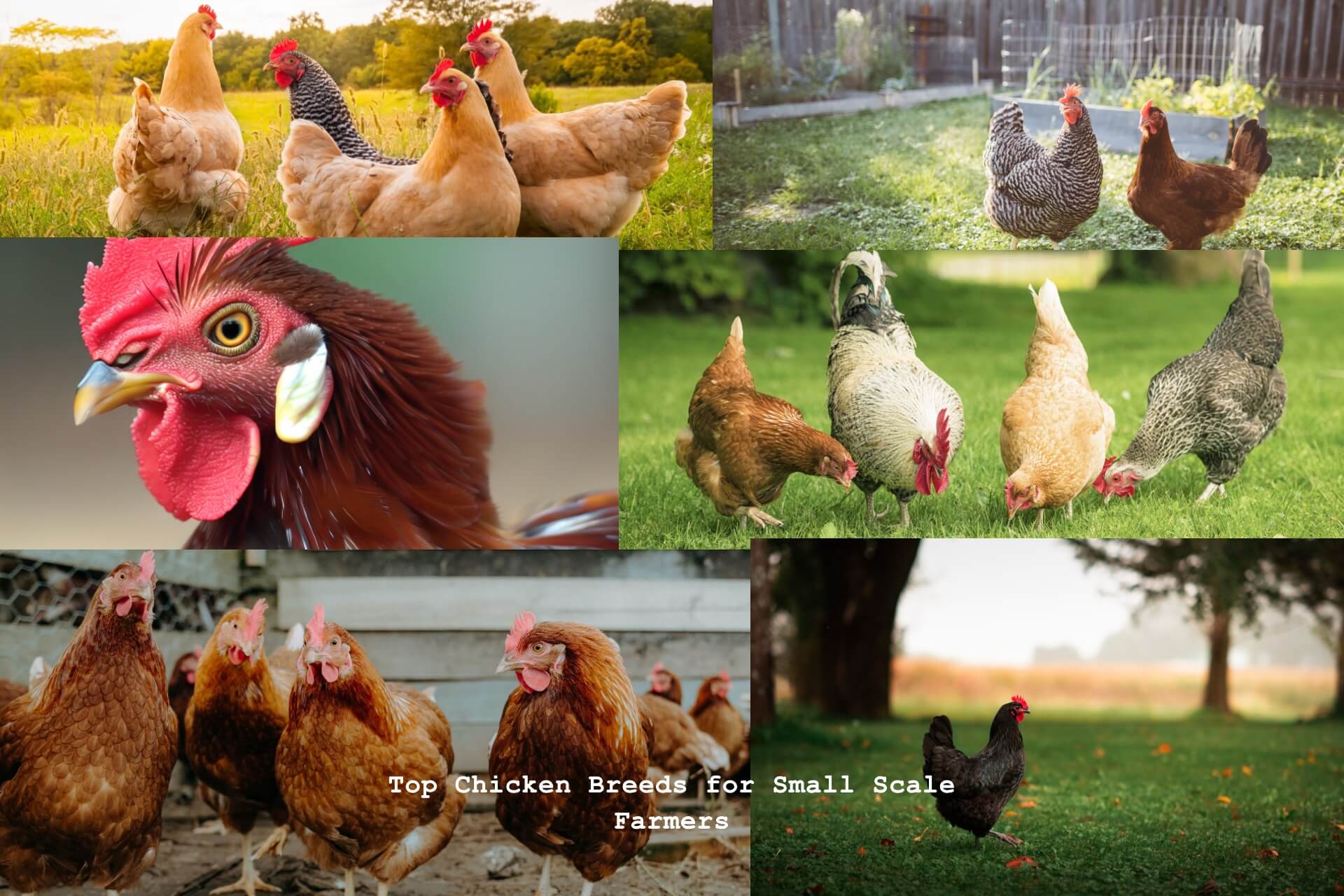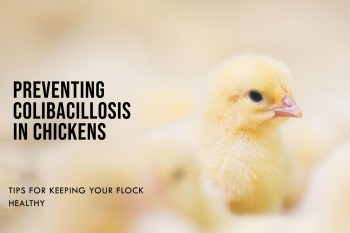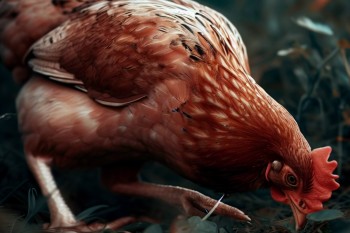Top
Chicken Breeds for Small-Scale Farmers
I. Introduction
When embarking on the journey of small-scale chicken farming,
one of the most critical decisions you'll face is choosing the right chicken
breed for your specific needs. This decision isn't to be taken lightly, as it
can significantly impact the success and sustainability of your poultry
operation. In this section, we will emphasize the utmost importance of making
an informed choice and delve into the essential factors that should guide your
selection process.
A. Importance of Choosing the Right
Chicken Breed
Selecting the right chicken breed for your small-scale farm
is akin to choosing the foundation of your farming venture. It's a decision
that will influence various aspects of your operation, from egg and meat
production to overall management and maintenance. Here's why the choice of
chicken breed is of paramount importance:
1. Productivity and Efficiency: Different chicken breeds excel in
various aspects of production. Some are prolific egg layers, while others are
renowned for their meat quality. Choosing the right breed ensures you optimize
your resources and maximize efficiency on your farm.
2. Resource Management: The choice of breed impacts resource
allocation. Some breeds require more space, feed, or specialized care. The
right breed aligns with your available resources, preventing unnecessary
expenditures.
3. Market Demand: The preferences of consumers and the
local market play a crucial role. Understanding the demand for specific chicken
products (eggs, meat) in your area can guide your breed selection to meet
market needs.
4. Climate and Environment: The climate and environment of your
farm location matter. Some breeds are more heat-tolerant, while others are
cold-hardy. Choosing breeds suited to your climate ensures the health and
well-being of your flock.
5. Diversification: Consider whether you want a
diversified flock with different breeds. Diversification can offer versatility
in product offerings and minimize risks associated with a single breed.
6. Personal Preferences: Your personal preferences matter,
too. Do you prefer friendly and docile chickens, or are you looking for more
independent birds? Your interaction with your flock can impact your overall
farming experience.
B.
Factors to Consider When Selecting Chicken Breeds
Selecting the right chicken breed is a nuanced process that
involves considering various factors. To make an informed choice, pay close
attention to the following key aspects:
1. Purpose: Define the primary purpose of your
flock. Are you raising chickens for eggs, meat, or both? Different breeds excel
in specific areas, so align your choice with your goals.
2. Climate and Environment: Assess your farm's climate and
environment. Some breeds thrive in hot, humid conditions, while others are
better suited to cold climates. Ensure the breed is adapted to your region.
3. Space and Housing: Consider the space available for
your flock and the type of housing you can provide. Some breeds require more
room to roam, while others do well in confined spaces.
4. Temperament: Evaluate the temperament of the
breed. Do you prefer friendly and easy-to-handle chickens, or are you
comfortable with more independent birds? Temperament can affect daily
interactions and management.
5. Egg Production: If you're interested in egg
production, research the breed's egg-laying capabilities. Look for breeds known
for consistent egg production and the color of eggs they produce.
6. Meat Quality: For meat production, prioritize
breeds with good meat quality. Characteristics like meat-to-bone ratio and
growth rate are essential considerations.
7. Heritage vs. Hybrid: Decide between heritage
(traditional) breeds and hybrid (crossbred) chickens. Heritage breeds often
have unique characteristics and are well-suited to specific farming
philosophies, while hybrids are bred for maximum productivity.
8. Availability: Ensure that the chosen breed is
readily available in your area. Accessibility to chicks or mature birds can
impact your farm's setup timeline.
9. Market Demand: Analyze the local market demand for
chicken products. Your breed choice should align with market preferences to
maximize profitability.
10. Health and Disease Resistance: Consider the breed's susceptibility
to common poultry diseases. Breeds with robust immune systems can reduce the
risk of disease outbreaks.
11. Long-Term Goals: Think about your long-term goals.
Are you looking to expand your flock in the future? Consider the breed's
sustainability and suitability for your future plans.
12. Local Regulations: Be aware of any local regulations or
restrictions related to chicken breeds, coop structures, or flock size.
Compliance with these regulations is essential for a smooth operation.
In the following sections, we will explore specific chicken
breeds that excel in various aspects, allowing you to make a well-informed
decision tailored to your small-scale farming aspirations.
II. The Sussex Chicken

A.
Characteristics and Temperament
The Sussex chicken is a delightful and versatile breed known
for its distinctive appearance and friendly temperament. Understanding its
characteristics and temperament is crucial when considering it for your
small-scale farm.
Characteristics: Sussex chickens are characterized by
their white feathers adorned with black speckles, giving them a unique and
eye-catching appearance. They typically have a medium-sized single comb and
wattles. Sussex chickens come in various color varieties, including the popular
Sussex Speckled, Sussex Red, and Sussex White.
Temperament: One of the standout qualities of
Sussex chickens is their docile and friendly temperament. They are often
referred to as "gentle giants" due to their calm nature. This amiable
disposition makes them an excellent choice for small-scale farmers,
particularly beginners and families. Whether you're handling them daily or
introducing them to children, Sussex chickens are known for being easy to work
with and less prone to aggressive behavior.
B.
Egg Production
When it comes to egg production, Sussex chickens are
consistent and reliable layers, making them a valuable asset to your
small-scale farm.
Egg Production: Sussex chickens are prolific layers
of brown eggs. Their ability to maintain consistent egg production throughout
the year is a significant advantage. This means a steady supply of fresh,
nutritious eggs for your family or local market. Sussex eggs are not only
abundant but also known for their delicious flavor and robust eggshells,
reducing the risk of breakage.
C.
Pros and Cons
As with any chicken breed, Sussex chickens come with their
own set of pros and cons that should be considered before adding them to your
farm.
Pros:
1. Friendly and Docile: Sussex chickens have a reputation
for their amiable temperament, making them suitable for family farms and
beginners.
2. Consistent Egg Production: They are reliable layers of brown
eggs, ensuring a steady supply of fresh eggs.
3. Tolerant of Various Weather
Conditions:
Sussex chickens can adapt to different climates, making them suitable for a
range of farm locations.
4. Easy to Handle: Their ease of handling simplifies tasks
like health checks, egg collection, and general care.
Cons:
1. Broodiness: Sussex chickens may go broody more
frequently than some other breeds. While this can lead to natural hatching of
chicks, it can also reduce egg production during broody periods.
2. Moderate Meat Quality: While Sussex chickens are considered
dual-purpose birds, their meat quality is generally considered moderate. If
meat production is a primary goal, other breeds may be more suitable.
D.
Care and Maintenance Tips
To ensure your Sussex chickens thrive on your small-scale
farm, it's essential to provide them with proper care and maintenance.
1. Shelter: Provide a secure and well-ventilated
coop to protect them from predators and harsh weather conditions. Ensure
adequate roosting space and nesting boxes.
2. Feeding: Offer a balanced diet that includes
high-quality poultry feed. You can also supplement their diet with kitchen
scraps and forage to enhance their nutrition.
3. Fresh Water: Ensure a constant supply of fresh,
clean water. Hydration is crucial for their overall health and egg production.
4. Health Checks: Regularly inspect your Sussex
chickens for signs of illness or injury. Promptly address any health concerns
to prevent the spread of diseases.
5. Nesting Boxes: Provide comfortable nesting boxes
filled with clean bedding material to encourage egg laying in a suitable
location.
6. Free-Range Opportunities: If possible, allow your Sussex
chickens access to outdoor areas where they can forage for insects and plants.
This contributes to their overall well-being.
7. Social Interaction: These sociable birds benefit from
social interaction. Spend time with your flock to build trust and familiarity.
8. Protection: Protect your Sussex chickens from
common poultry diseases by implementing biosecurity measures and maintaining a
clean living environment.
By following these care and maintenance tips, you'll ensure
that your Sussex chickens lead healthy, happy lives on your small-scale farm,
contributing to both egg production and the overall enjoyment of your farming
experience.
III. The Rhode Island Red

A.
Characteristics and Hardiness
Rhode Island Red (RIR) chickens are a beloved breed known for
their hardiness and productivity. Understanding their characteristics and
hardiness is crucial when considering them for your small-scale farm.
Characteristics: Rhode Island Reds are medium to
large-sized birds with vibrant, mahogany-colored feathers. They typically have
a single comb and wattles. Their strong and sturdy build is a testament to
their robust nature. These chickens are renowned for their attractive
appearance and confident posture.
Hardiness: Perhaps one of the most significant
advantages of Rhode Island Reds is their hardiness. They are well-adapted to a
variety of climates, making them suitable for small-scale farms in different
regions. Whether your farm experiences hot summers or cold winters, RIRs are
known for their ability to thrive and remain healthy in diverse weather
conditions.
B.
Brown Egg Production
When it comes to egg production, Rhode Island Reds are
consistent layers of brown eggs, making them an excellent choice for
small-scale farmers seeking reliable egg production.
Brown Egg Production: Rhode Island Reds are prolific
layers of brown eggs. Their eggs are not only plentiful but also known for
their robust shells, reducing the risk of breakage. If you're looking to
provide your family or local market with a steady supply of brown eggs, RIRs
won't disappoint.
C.
Pros and Cons
As with any chicken breed, Rhode Island Reds come with their
own set of pros and cons that should be carefully considered before adding them
to your farm.
Pros:
1. Hardiness: Rhode Island Reds are known for
their adaptability to various climates, which is a significant advantage for
small-scale farmers in regions with fluctuating weather conditions.
2. Consistent Brown Egg Production: They are reliable layers of brown
eggs, ensuring a steady supply of fresh eggs for your family or market.
3. Low Susceptibility to Diseases: RIRs have a reputation for their
robust immune systems, reducing the risk of common poultry diseases.
4. Strong Foragers: They are excellent foragers and can
help reduce pest populations on your farm when allowed to free-range.
Cons:
1. Potential Aggression: Rhode Island Reds, particularly
roosters, can be somewhat aggressive. This behavior may require separation or
careful management in a mixed flock.
2. Space Requirements: They may require more space due to
their active nature. Providing ample room for them to roam can help prevent
overcrowding and aggression.
D.
Care and Maintenance Tips
To ensure your Rhode Island Reds thrive on your small-scale
farm, it's essential to provide them with proper care and maintenance.
1. Shelter: Provide a secure and well-ventilated
coop that protects them from predators and adverse weather conditions. Ensure
adequate space for roosting and nesting.
2. Feeding: Offer a balanced diet consisting of
high-quality poultry feed. Supplementary treats like vegetables and grains can
be given in moderation.
3. Fresh Water: Ensure a constant supply of clean
and fresh water. Hydration is essential for their overall health and egg
production.
4. Health Checks: Regularly inspect your Rhode Island
Reds for signs of illness or injury. Promptly address any health concerns to
maintain a healthy flock.
5. Nesting Boxes: Provide comfortable nesting boxes
filled with clean bedding material to encourage egg laying in a suitable
location.
6. Social Interaction: Spend time with your flock to build
trust and familiarity. This can help manage potential aggression and foster a
more harmonious environment.
7. Protection: Implement biosecurity measures to
protect your Rhode Island Reds from common poultry diseases. Regularly clean
their living space to maintain a sanitary environment.
By following these care and maintenance tips, you'll ensure
that your Rhode Island Reds remain healthy, happy, and productive on your
small-scale farm. Their combination of hardiness and consistent egg production
makes them a valuable addition to any poultry operation.
IV. The Plymouth Rock

A.
Dual-Purpose Nature
The Plymouth Rock chicken is celebrated for its versatility
as a dual-purpose breed. Understanding its dual-purpose nature is essential
when considering it for your small-scale farm.
Dual-Purpose Nature: Plymouth Rock chickens are renowned
for their dual-purpose characteristics, meaning they are well-suited for both
meat and egg production. These birds offer a balanced combination of traits
that make them valuable assets to small-scale farmers.
B.
Meat and Egg Production
When it comes to both meat and egg production, Plymouth Rock
chickens excel, making them an excellent choice for those looking to maximize
the utility of their flock.
Meat Production: Plymouth Rocks are known for their
plump and flavorful meat. Their substantial body size and well-developed
muscles result in quality meat suitable for the dinner table. If you plan to
raise chickens for meat, Plymouth Rocks are a top contender.
Egg Production: In addition to their meat quality,
Plymouth Rock hens are consistent layers of brown eggs. This dual-purpose
capacity ensures a steady supply of both fresh eggs and meat, contributing to
the sustainability of your small-scale farm.
C.
Pros and Cons
As with any chicken breed, Plymouth Rock chickens come with
their own set of pros and cons that should be considered before adding them to
your farm.
Pros:
1. Dual-Purpose Utility: Plymouth Rock chickens are highly
versatile, excelling in both meat and egg production, providing a well-rounded
source of food for your farm.
2. Friendly Temperament: They are known for their friendly
and docile temperament, making them easy to handle and suitable for family
farms.
3. Attractive Appearance: Their attractive black and white
plumage adds visual appeal to your flock.
4. Reliable Layers: Plymouth Rock hens are consistent
layers of brown eggs, ensuring a steady supply of fresh eggs.
Cons:
1. Space Requirements: Due to their larger body size,
Plymouth Rocks may require more space than smaller chicken breeds. Ensure they
have ample room to move comfortably.
2. Slower to Mature: They may take a bit longer to mature
compared to some other breeds, which can affect the time it takes to achieve
full meat production potential.
D.
Care and Maintenance Tips
To ensure your Plymouth Rock chickens thrive on your
small-scale farm, it's essential to provide them with proper care and
maintenance.
1. Shelter: Offer a secure and well-ventilated
coop that protects them from predators and harsh weather conditions. Ensure
adequate roosting space and nesting boxes.
2. Feeding: Provide a balanced diet consisting
of high-quality poultry feed. Supplement their diet with vegetables, grains,
and kitchen scraps for added nutrition.
3. Fresh Water: Maintain a constant supply of clean
and fresh water. Hydration is crucial for their overall health, meat
production, and egg-laying capacity.
4. Health Checks: Regularly inspect your Plymouth Rock
chickens for signs of illness or injury. Promptly address any health concerns
to maintain a healthy flock.
5. Nesting Boxes: Furnish comfortable nesting boxes
with clean bedding material to encourage egg laying in a suitable location.
6. Space: Due to their larger size, ensure
they have sufficient space both inside the coop and in outdoor areas for
exercise and foraging.
7. Social Interaction: Spend time with your Plymouth Rock
flock to build trust and familiarity. Their friendly disposition can be
enhanced through positive human-chicken interactions.
By following these care and maintenance tips, you'll ensure
that your Plymouth Rock chickens thrive as dual-purpose birds on your
small-scale farm. Their ability to provide both meat and eggs makes them a
valuable and sustainable addition to any poultry operation.
V. The Australorp
A.
Impressive Egg-Laying Records
The Australorp chicken is celebrated for its remarkable
egg-laying capabilities. Understanding its impressive egg-laying records is
essential when considering it for your small-scale farm.
Impressive Egg-Laying Records: Australorps hold a prestigious place
in the world of chicken breeds due to their exceptional egg-laying abilities.
These birds have broken numerous world records for egg production, making them
a top choice for small-scale farmers who prioritize egg production.
B.
Pros and Cons
As with any chicken breed, Australorp chickens come with
their own set of pros and cons that should be carefully considered before
adding them to your farm.
Pros:
1. Unmatched Egg-Laying Capacity: Australorps are unmatched when it
comes to egg production. They consistently lay a high number of brown eggs,
ensuring a bountiful supply for your family or local market.
2. Calm and Friendly Temperament: They are known for their calm and friendly
disposition, making them easy to handle and suitable for family farms.
3. Adaptability: Australorps are adaptable to various
climates, which is a significant advantage for small-scale farmers in regions
with fluctuating weather conditions.
4. Low-Maintenance: These chickens are generally
low-maintenance, making them an excellent choice for those looking for
productivity without excessive care requirements.
Cons:
1. Broodiness: Australorps may go broody more
frequently than some other breeds. While this can lead to natural hatching of
chicks, it can also reduce egg production during broody periods.
2. Smaller Body Size: Compared to some other breeds,
Australorps have a relatively smaller body size. If meat production is a primary
goal, other breeds may be more suitable.
C.
Care and Maintenance Tips
To ensure your Australorp chickens thrive on your small-scale
farm, it's essential to provide them with proper care and maintenance.
1. Shelter: Offer a secure and well-ventilated
coop that protects them from predators and harsh weather conditions. Ensure
adequate roosting space and nesting boxes.
2. Feeding: Provide a balanced diet consisting
of high-quality poultry feed. Supplement their diet with vegetables, grains,
and kitchen scraps for added nutrition.
3. Fresh Water: Maintain a constant supply of clean
and fresh water. Hydration is crucial for their overall health and egg-laying
capacity.
4. Health Checks: Regularly inspect your Australorp
chickens for signs of illness or injury. Promptly address any health concerns
to maintain a healthy flock.
5. Nesting Boxes: Furnish comfortable nesting boxes
with clean bedding material to encourage egg laying in a suitable location.
6. Social Interaction: Spend time with your Australorp
flock to build trust and familiarity. Their friendly disposition can be
enhanced through positive human-chicken interactions.
7. Egg Collection: Due to their prolific egg-laying,
collect eggs regularly to prevent broodiness and ensure that eggs are in
optimal condition.
By following these care and maintenance tips, you'll ensure
that your Australorp chickens continue to break egg-laying records on your
small-scale farm. Their unmatched egg production makes them a valuable asset
for providing a steady supply of fresh eggs to meet your farm's needs.
VI. The Orpington
A.
Beauty and Productivity
The Orpington chicken is celebrated for its combination of
beauty and productivity. Understanding these aspects is crucial when
considering it for your small-scale farm.
Beauty and Productivity: Orpington chickens are known for
their stunning appearance and productivity. With their fluffy plumage and
docile nature, they are not only a delight to look at but also a valuable
addition to your small-scale farm.
B.
Pros and Cons
As with any chicken breed, Orpington chickens come with their
own set of pros and cons that should be carefully considered before adding them
to your farm.
Pros:
1. Beautiful and Eye-Catching
Appearance:
Orpingtons are renowned for their fluffy plumage and attractive appearance,
making them a visual highlight of your flock.
2. Reliable Layers of Brown Eggs: They are consistent layers of brown
eggs, ensuring a steady supply of fresh eggs for your family or local market.
3. Calm and Friendly Temperament: Orpingtons are known for their calm
and friendly disposition, making them easy to handle and suitable for family
farms.
4. Cold-Hardy: These chickens are cold-hardy, which
is advantageous for farms in regions with harsh winters.
Cons:
1. Slower to Mature: Orpingtons may be slower to mature
compared to some other breeds, which can affect the time it takes to achieve
full egg-laying capacity.
2. Heat Sensitivity: They may be less productive in
extreme heat, so additional care and protection may be required during hot
weather.
C.
Care and Maintenance Tips
To ensure your Orpington chickens thrive on your small-scale
farm, it's essential to provide them with proper care and maintenance.
1. Shelter: Offer a secure and well-ventilated
coop that protects them from predators and harsh weather conditions. Ensure
adequate roosting space and nesting boxes.
2. Feeding: Provide a balanced diet consisting
of high-quality poultry feed. Supplement their diet with vegetables, grains,
and kitchen scraps for added nutrition.
3. Fresh Water: Maintain a constant supply of clean
and fresh water. Hydration is crucial for their overall health and egg-laying
capacity.
4. Health Checks: Regularly inspect your Orpington
chickens for signs of illness or injury. Promptly address any health concerns
to maintain a healthy flock.
5. Nesting Boxes: Furnish comfortable nesting boxes
with clean bedding material to encourage egg laying in a suitable location.
6. Heat Management: During hot weather, provide shade
and ample ventilation in their coop to prevent heat stress. Ensure they have
access to cool, fresh water at all times.
7. Social Interaction: Spend time with your Orpington
flock to build trust and familiarity. Their friendly disposition can be
enhanced through positive human-chicken interactions.
By following these care and maintenance tips, you'll ensure
that your Orpington chickens remain both beautiful and productive on your
small-scale farm. Their combination of beauty, friendly temperament, and
reliable egg production makes them a valuable addition to any poultry
operation, particularly for those in colder climates.
VII. The Pekin Duck (Diversifying
Your Flock)

A.
Characteristics and Benefits
Introducing ducks into your flock, particularly Pekin ducks,
can diversify your poultry operation. Understanding their characteristics and
benefits is crucial when considering them for your small-scale farm.
Characteristics and Benefits: Pekin ducks are distinctive
waterfowl known for their unique appearance and valuable contributions to a
small-scale farm.
Distinctive Appearance: Pekin ducks are easily recognizable
by their pure white feathers, bright orange bills, and orange legs. Their
charming appearance adds a touch of diversity to your flock.
Excellent Foragers: These ducks are skilled foragers,
eagerly exploring your farm for insects, plants, and even weeds. Their foraging
behavior can help reduce pest populations on your farm, contributing to natural
pest control.
Hardy and Adaptable: Pekin ducks are hardy and adaptable to
various climates, making them suitable for small-scale farms in different
regions.
Friendly and Sociable: They have a friendly and sociable
disposition, making them enjoyable to interact with and ideal for families.
B.
Meat and Egg Production
Pekin ducks are renowned for their meat quality and can also
contribute to egg production on your farm.
Meat Production: Pekin ducks are primarily raised for
their succulent and flavorful meat. Their large size, white meat, and generous
meat-to-bone ratio make them a top choice for meat production.
Egg Production: While not as prolific egg layers as
chickens, Pekin ducks can provide a steady supply of large white eggs. Their
eggs are favored by many for their rich taste and excellent baking qualities.
C.
Pros and Cons
As with any addition to your flock, Pekin ducks come with
their own set of pros and cons that should be carefully considered.
Pros:
1. Meat Quality: Pekin ducks are renowned for their
high-quality meat, making them a valuable source of protein for your farm.
2. Excellent Foragers: Their foraging behavior helps
control pests and reduces the need for chemical pest control methods.
3. Friendly and Sociable: Pekin ducks are known for their
sociable and docile nature, making them a pleasant addition to your farm.
4. Versatility: They are versatile birds suitable
for both meat and egg production, allowing you to diversify your farm's
offerings.
Cons:
1. Messiness: Ducks can be messier than chickens,
especially around water sources. Proper coop and water management are essential
to minimize mess.
2. Slower Growth: While Pekin ducks provide
high-quality meat, they may take longer to reach maturity compared to broiler
chickens.
D.
Care and Maintenance Tips
To ensure your Pekin ducks thrive on your small-scale farm,
it's essential to provide them with proper care and maintenance.
1. Shelter: Ducks require a secure and sheltered
area, especially at night, to protect them from predators and adverse weather
conditions. Ensure they have a clean and dry place to rest.
2. Feeding: Ducks need a balanced diet that
includes waterfowl feed or poultry feed suitable for ducks. Additionally, they
enjoy foraging for insects and plants.
3. Fresh Water: Ducks have a high water intake, so
ensure they have access to clean, freshwater for drinking and bathing.
Regularly clean and refresh their water sources.
4. Health Checks: Regularly inspect your Pekin ducks
for signs of illness or injury. Ducks can be susceptible to certain diseases,
so early detection is essential.
5. Social Interaction: Spend time with your ducks to build
trust and familiarity. This can make them more manageable and enjoyable to work
with.
6. Protection: Protect your ducks from predators,
especially during the night. Implement appropriate fencing and security
measures.
7. Nesting and Brooding: Provide suitable nesting areas if
you plan to hatch ducklings. Ducks are good brooders, but providing a safe
space for ducklings is essential.
By following these care and maintenance tips, you'll ensure
that your Pekin ducks thrive and contribute to the diversity and productivity
of your small-scale farm. Whether you're interested in meat, eggs, or pest
control, Pekin ducks can be valuable additions to your poultry operation.
VIII. Conclusion
A.
Recap of Top Chicken Breeds
In this comprehensive guide to selecting chicken breeds for
your small-scale farm, we've explored a diverse range of breeds, each with its
own unique characteristics and benefits. Let's recap the top chicken breeds
we've discussed:
1. The Sussex Chicken: Known for its friendly temperament
and consistent egg production, Sussex chickens are a versatile choice for both
beginners and experienced farmers.
2. The Rhode Island Red: Renowned for its hardiness and
reliability in both meat and egg production, Rhode Island Reds are an excellent
addition to any small-scale farm.
3. The Plymouth Rock: As dual-purpose birds, Plymouth
Rocks offer a balanced combination of meat and egg production, making them a
valuable asset for diversified farming.
4. The Australorp: With their exceptional egg-laying
capacity, Australorps are ideal for those seeking high egg production on their
small-scale farms.
5. The Orpington: These beautiful and productive birds
bring elegance and reliability to your flock, particularly in cooler climates.
6. The Pekin Duck: Introducing ducks, specifically
Pekin ducks, can diversify your farm. Their meat quality, egg production, and
pest control abilities make them a versatile choice.
B.
Final Thoughts on Small-Scale Chicken Farming
Small-scale chicken farming is a rewarding endeavor that
offers a sustainable source of eggs, meat, and pest control while fostering a
connection with nature and the food you consume. As you embark on your farming
journey, keep the following final thoughts in mind:
Diversity is Key: Consider diversifying your flock by
incorporating different chicken breeds or even ducks. This diversity can offer
versatility in product offerings and reduce risks associated with a single
breed.
Local Adaptation: Pay close attention to your local
climate and market demands. Choosing breeds that are well-adapted to your
region and meet local preferences can boost your farm's success.
Care and Maintenance: Proper care and maintenance are
crucial for the health and productivity of your flock. Regular health checks,
clean housing, and a balanced diet are essential components of successful
small-scale farming.
Enjoy the Journey: Small-scale farming is not just
about the end products; it's also about the experience. Interact with your
flock, build relationships with your animals, and relish the satisfaction of
providing quality food for your family or community.
As you embark on your small-scale chicken farming journey,
remember that each breed has its unique contributions to your farm's success.
By carefully considering your goals and resources, you can select the breeds
that best align with your vision and create a thriving and harmonious poultry
operation. 🐓

















